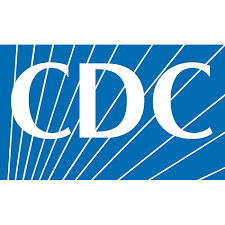What We Know So Far About the New COVID-19 Variants

During this pandemic, documentation of multiple variants of the COVID-19 virus has occurred across the United States and throughout the world. Data on these COVID-19 variants and their characteristics are quickly emerging.
Scientific research is gearing towards determining whether these variants spread more easily, whether their characteristics entail more severe symptoms among patients, and whether their changes have an impact on the ability of currently authorized vaccines to protect people.
As of now, there is not enough evidence available to suggest that these variants increase the risk of death or severity of symptoms.
What do Scientists know?

Scientists have been expecting the emergence of new variants of the COVID-19 virus as viruses are known to go through continuous changes or mutations.
Studies, tests, and researches that include genetic analyses of the virus aid scientists in understanding the changes occurring and whether these mutations alter the ability of the virus to spread and infect individuals. These mutations can result in variants that either emerge and disappear or emerge and persist.
There are currently multiple COVID-19 variants circulating the globe.
Where have these variants emerged?
A variant in the United Kingdom (UK) has emerged with an unusually high number of mutations. This specific variant has been noted to have an easier and faster time spreading than other variants. It was first discovered in September 2020 and quickly spread throughout London and southeast England.
Since then, the variant has been detected in several more countries across the globe, including the United States and Canada. Presently, no sufficient evidence is available to suggest this variant increases the risk of death or severity of symptoms.
Another variant, different from the one detected in the UK, has also emerged in South Africa. It was detected at the beginning of October 2020 and its mutations have certain similarities to the UK variant called B.1.1.7. It is likewise having an easier and faster time spreading than other variants.
Cases caused by this variant have already occurred outside of South Africa. Currently, there is not enough evidence available to suggest that these variants increase the risk of death or severe symptoms.
A separate variant has also emerged in Nigeria and is being closely monitored by the Centers for Disease Control and Prevention (CDC). Similar to the other two variants from the UK and South Africa, there is no evidence to suggest the variant detected in Nigeria causes an increased risk of death or severity of symptoms among those infected by it.
What do scientists need to know?
To mitigate the harms of the emerging variants that are currently circulating, studies are being carried out to answer the following:
- To what extent have these new variants already spread?
- Do these variants experience an increase or decrease in their ability to spread?
- Do these variants affect the severity of symptoms and diseases?
- Are currently available viral tests able to detect these variants?
- Does it affect the effectiveness of the medications currently used for COVID-19?
- Does it change the effectiveness of existing and future vaccines against COVID-19?
- It should be noted that based on the nature of the immune response to the virus, most experts believe that it is unlikely for the variants to change the efficacy of vaccines.
What is the CDC doing?

The situation is being closely monitored by the CDC and other public health agencies. CDC is currently focusing on detecting and characterizing the different viral variants while also working to better its ability to detect both old and new variants of COVID-19. They have staff on-the-ground to support the investigation of these viral variants.
Private entities, organizations, companies, and households have their part to play in this, as well. The proper management of medical and pharmaceutical waste can impact the course of the COVID-19 pandemic.
Pharmaceutical waste disposal

Pharmaceutical waste disposal pertains to the disposal of any chemical, biological product, or medicine whose intended purpose is to diagnose, cure, mitigate, care, provide treatment, or prevent any disease or injury. These products or medicine belong to different classifications such as:
- RCRA Hazardous Pharmaceuticals
- Non-Regulated Pharmaceuticals
- Non-Hazardous Pharmaceuticals
- DEA Controlled Pharmaceuticals
Consequences of improper pharmaceutical waste management
When managed correctly, expired pharmaceuticals are not considered a serious threat to public health or the environment. However, neglecting proper disposal of these wastes may be hazardous and could result in the following problems:
- Contamination of drinking water when landfills are not properly sited or constructed.
- Disruption of sewage treatment plants when non-biodegradable, antineoplastics, and disinfectants are disposed of into the sewage system.
- Release of toxic pollutants in the air when waste is incorrectly incinerated.
- Entering expired drugs into the market for resale and reuse when sorting and disposal are inefficient.
Regulations and Guidelines
In order to avoid these problems, hospitals, pharmacies, and private entities associated with the handling and disposal of pharmaceutical waste are required to comply with simultaneous multi-regulatory directives from:
- Drug Enforcement Administration (DEA)
- Environmental Protection Agency (EPA)
- The Centers for Medicare and Medicaid Services (CMS)
These government entities enforce regulations and guidelines that contain requirements such as:
- Short-cycle dispensing regulations (CMS)
- Secure and Responsible Drug Disposal Act of 2010 guidelines (DEA)
- Best management practices for unused pharmaceuticals and healthcare facilities (EPA)
Policies on pharmaceutical waste disposal depend on the classification of waste. These policies contain stipulations regarding the following:
- Hazardous waste – Must be burned in a hazardous waste incinerator.
- Nonhazardous pharmaceutical waste – Must be incinerated at a medical waste treatment facility or waste-to-energy processing plant.
- Return to Pharmacy stock – This may only be used when the facility and/or payer contracts require credits for unused medications that adhere to return guidelines.
Reverse distribution – Generally used in cases of creditable expired drugs that retain their original manufacturer packaging.
Fines
To ensure adherence to proper pharmaceutical waste disposal, fines and penalties have multiplied across the United States. These fines can range from $25,000 to $70,000.
Criminal provisions stipulated under the RCRA include violations such as:
- Treatment, storage, or disposal without a permit or in violation of a permit.
- Transporting hazardous waste without a manifest.
- Knowing alteration, destruction, or concealment of records.
- Knowing endangerment.
